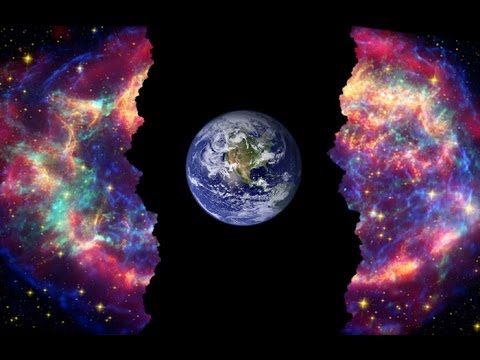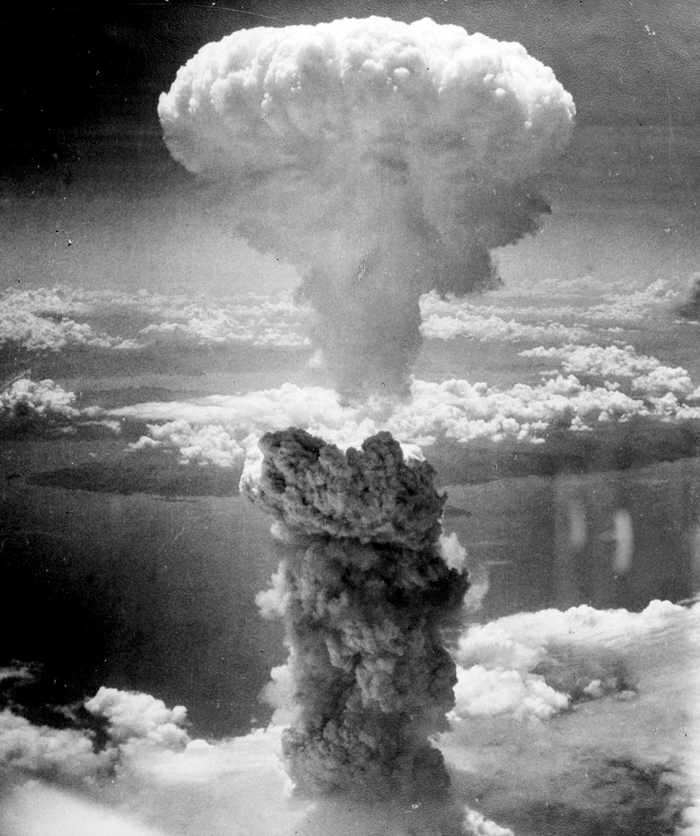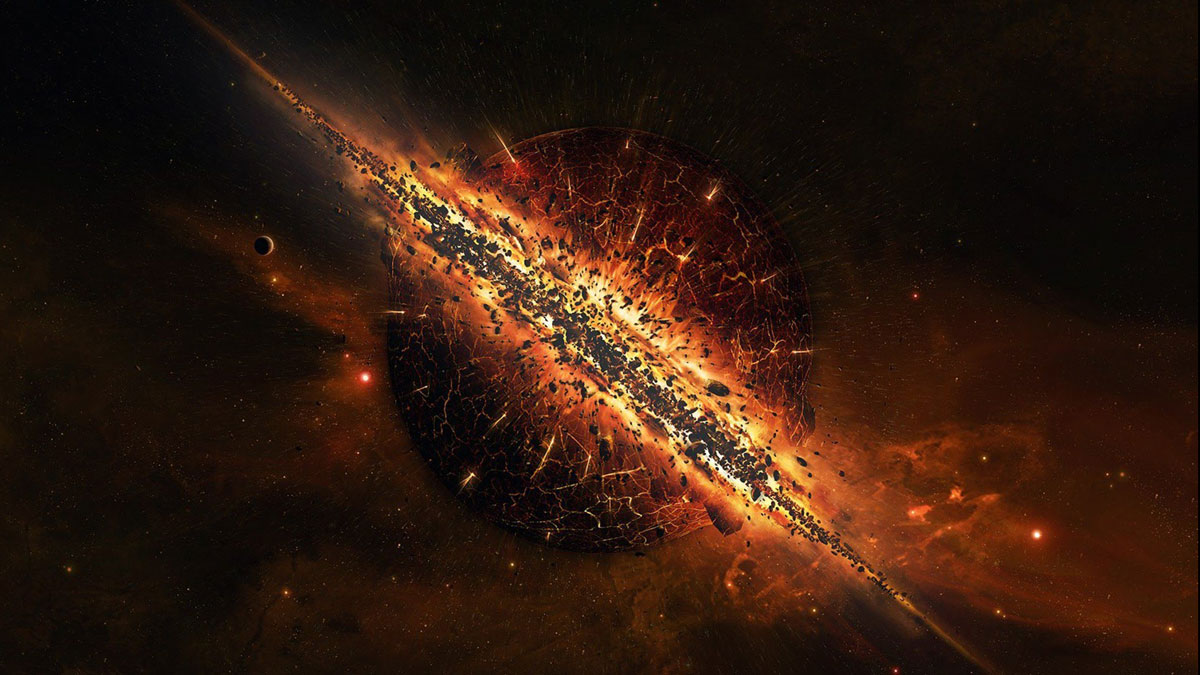The consensus at present among astronomers and cosmologists is that the universe began with a Big Bang and will end in a Big Chill.
 Dark energy is driving galaxies apart, but it is not increasing exponentially, as would be necessary if there was to be a “Big Rip.”
Dark energy is driving galaxies apart, but it is not increasing exponentially, as would be necessary if there was to be a “Big Rip.”
With the “Big Rip” hypothesis, dark energy increases exponentially until everything, including atoms themselves, is ripped asunder in an exponentially accelerating expansion of the universe.
The “Big Chill” is latest favorite, if not faddish scenario by astronomers and cosmologists. In it, entropy occurs over hundreds of trillions of years. Stars will flame or flicker out, and even black holes will slowly die a cold, inert death.
The problem with this conception is that it is based on the Newtonian idea of time as a separate factor. We still treat time as a cosmological constant rather than what it is, a psychological construct.
Despite the fact that Einstein proved that time cannot be separated from space (or energy and matter for that matter), it seems scientists are as incapable as ordinary folks of conceiving the movement of the cosmos and life in other terms. However another narrative is not only possible; it’s essential.
Two things unduly influence the current “Big Chill” hypothesis: the materialist/mechanist bias; and the inability to conceive and explain time in another way, beyond the “common sense” view of the “arrow of time.” This attests to our arrested development as humans.
After Einstein, scientists essentially gave up on explaining time in a different way, opting instead for using the language of mathematics rather than philosophical narratives to convey the new insights among themselves, even as they themselves often continued to think of time in Newtonian ways.
A division between the scientific and the common sense views of time thus took hold, even in scientists themselves. That has not served either science or society.
This dichotomy has become incoherent. It has resulted in absurdities like “we are looking back through our telescopes to the beginnings of the universe over 13 billion years ago,” though the earth is only 4 billion years old. Or looking ahead trillions of years, though we have little or no insight into what is happening in the present, cosmically or terrestrially.
The division between Einstein’s insights into space-time, and continuing to view time as a separate factor, has led to the almost unassailable notion that the Big Bang is something that happened about 14 billion years ago.
In actuality, as most cosmologists would admit if you held their feet to the fire, the Big Bang is an event that is still happening every moment everywhere in the universe. Creation is continuously being replicated. That insight allows us to free ourselves from the chains of materialism and mechanism, and from entropy as disorder.
Einstein’s insights could have called into question our basic ideas of time, which underpins consciousness, as we generally know it, which in turn has become incredibly fragmented and dysfunctional. But he, and science in general, fell back on mathematics, deeming serious, independent philosophical explanation unnecessary.
That has proven disastrous for the human prospect. Einstein proved that time and space are inseparable, but he and the physicists that followed him didn’t leave the space, much less embrace coherent philosophical narratives.
On Hiroshima day it’s worth reflecting that if Einstein had seen the necessity of sound philosophical explanation of his insights, rather than remaining in the rarified realms of mathematics, he would have been much more concerned about the implications of his discoveries for the human prospect.
He probably would not have written his infamous letter to FDR insisting that Americans had to develop the atom bomb before the Germans did. The Manhattan Project very likely would not have ensued. And the war crimes of two atomic bombings almost certainly would not have occurred (on Hiroshima 72 years ago today). Japan would still have been defeated; Germany already was.
The still persisting post-World War II lie, upon which the disgusting nationalism of Trumpism rests, is that a million more American boys would have been killed if we hadn’t used the bombs.
An all-out invasion of Japan was very unlikely by July 1945, since Russia was about to attack Japan. The attack came, non-coincidentally, on August 9
, the day “Fat Man” was dropped on Nagasaki. Eighty-five thousand Japanese were killed, and twelve thousand Russian soldiers died. The atomic bombings were meant to show Russia the power we now possessed.
Japan ended up retaining its emperor, the condition it offered before Hiroshima. And after decades of rationalization, America lost its soul. Philosophy became a slave to science, and science became a slave to man’s greed and power, now destroying the earth and humanity apace.
Martin LeFevre

